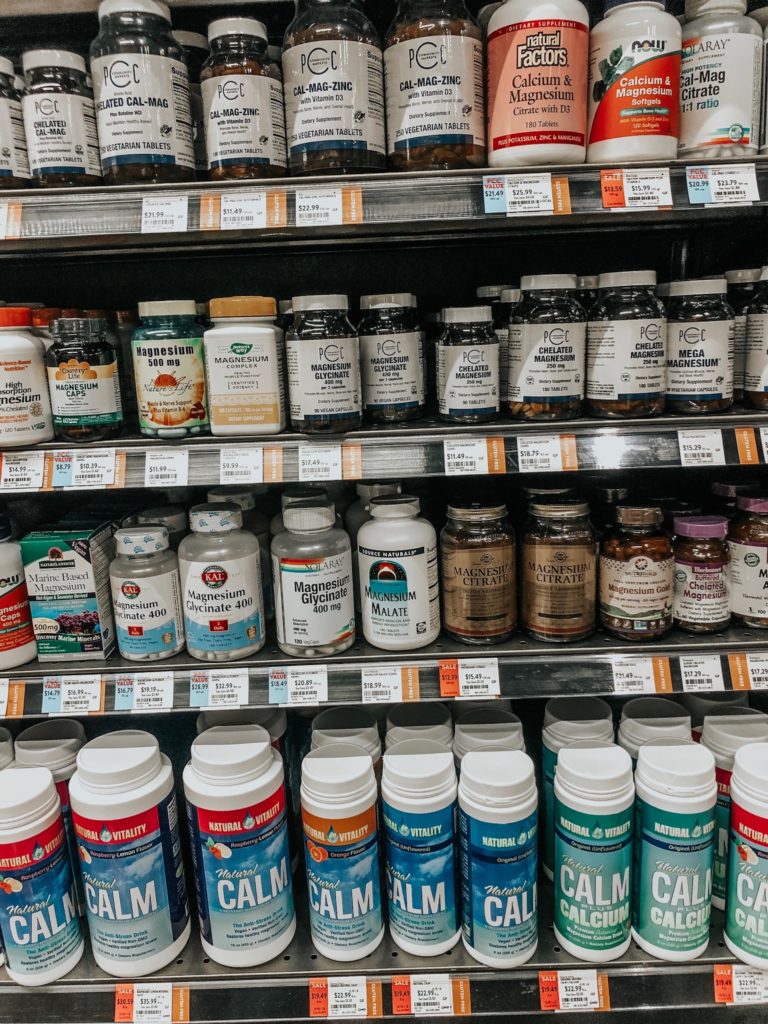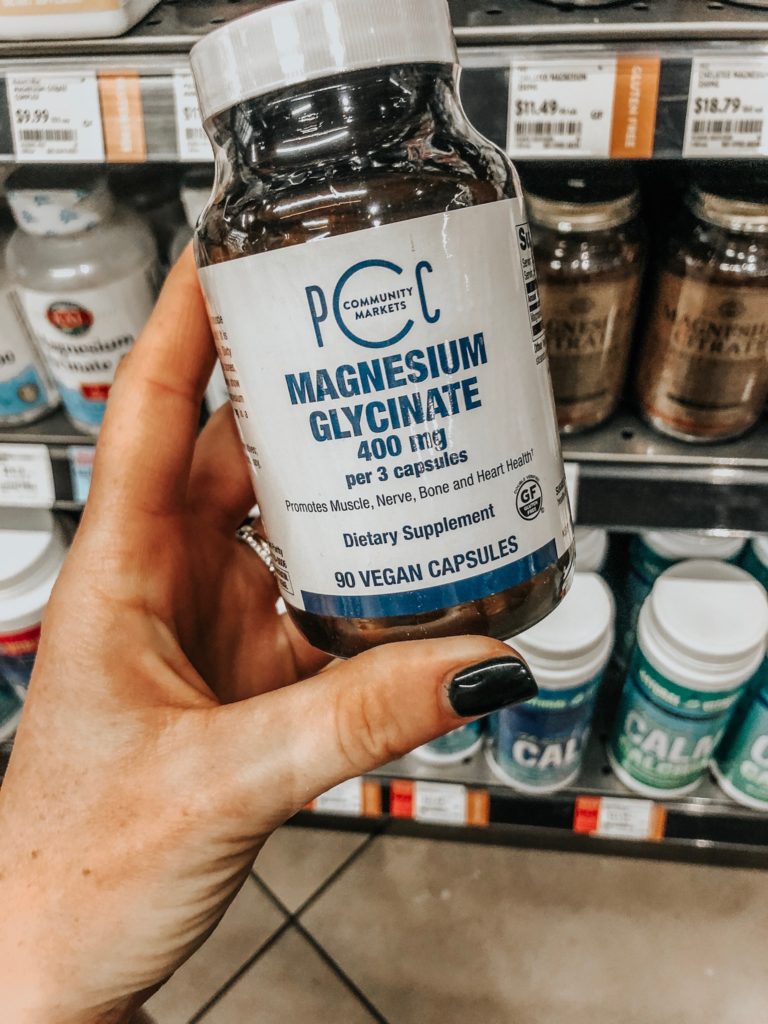Magnesium is all the rage right now and for good reason! It is my favorite mineral (yes I have a favorite mineral) and finally getting all the buzz it deserves. Magnesium can be a little tricky because it comes in different forms and there are a lot of supplements on the market right now. I thought I would break it all down for you here!

What is Magnesium + Why Do We Need It?
Magnesium is a multipurpose mineral and an essential nutrient. This means our body cannot make magnesium, so we must get it from our diet or supplementation. Magnesium is vital for the proper functioning of hundreds of enzymes and it’s crucial for both bone health and energy, among many other things. Most people run low in this mineral, but assessing magnesium status is challenging because it’s mostly stored in our bones and cells. High levels of stress, intense exercise, and environmental toxins can all deplete magnesium. Birth control can also deplete magnesium.
Not getting enough magnesium can lead to fatigue. When magnesium status is too low your metabolism will also decrease. If that’s not reason enough to take a magnesium supplement then I’m not sure what is! Magnesium also has anti-stress properties, will enhance your sleep, and will help you “go” in the morning 😉 Studies also have shown magnesium is associated with reduced PMS symptoms…praise!
Food First
Obviously getting all your vitamins and minerals via food is ideal, but most people just don’t. Here are good food sources of magnesium to include in your diet daily: green leafy vegetables, such as spinach, legumes, nuts, seeds, and whole grains, are good sources of magnesium. Think almonds, cashews, peanuts, pumpkin seeds, edamame, black beans, soy milk, yogurt, dark chocolate avocado, shrimp, salmon, and whole wheat bread. Magnesium is also added to some breakfast cereals and other fortified foods.

Magnesium Supplements
Magnesium supplements are available in a variety of forms and each form has different bioavailability (how well it’s absorbed) and functions. From my research it appears that forms of magnesium that dissolve well in liquid are more completely absorbed in the gut than less soluble forms. Overall, we know getting adequate intake via food or supplement is necessary and if you go the supplement route there are a few options to consider.

Magnesium Citrate: helps with relaxation, easily absorbed, and helps you go to the bathroom if you’re a little backed up 😉
Magnesium Glycinate: helps with relaxation, increased sleep quality, and stress relief. This form has fewer gastrointestinal side effects.
Magnesium Malate: very well absorbed, can enhance energy production, and possibly reduce fibromyalgia related pain.
Magnesium Oxide: used to treat constipation and heart burn. This form of magnesium is less bioavailable meaning its not as well absorbed and can therefore cause diarrhea.
Megnesium Threonate: can help with the treatment of migraines.
Magnesium Sulfate: AKA epsom salt which we all love in the bath to help sooth sore muscles, aches, and pains. This form can also be taken orally, but poorly absorbed and has a laxative effect.

Dosage + Side Effects
Most healthy individuals are not going to get too much magnesium from food sources. The kidneys do a good job of excreting excess magnesium through the urine. However, high doses of magnesium from dietary supplements can often result in diarrhea along with nausea and abdominal cramping. Magnesium is a common active ingredient in many laxatives, so these possible side effects make sense. Adjust your dosage if you’re experiencing these symptoms.
Tolerable upper limits for both men and women age 19+ is 350mg. Supplements might show higher dosage, but remember depending on the form you will not absorb 100% of the magnesium…some will be excreted. These upper tolerable limits are the same for pregnant and lactating women. Lastly, magnesium supplements can interact with different drugs, so it is best to check with a doctor before taking them.

Final Thoughts
In my experience magnesium can help chill you out at night. It doesn’t knock you out like a sleep aid, but helps with relaxation. I definitely think it helps me fall asleep at night, but I don’t feel groggy from it the next day. I will typically drink my CALM tea or I recently started taking these Chill Pills which are both forms of magnesium citrate at night. I want to start experimenting more with magnesium glycinate and CALM came out with a newer formula to promote more restful sleep.
xx, A
Disclaimer
All information on the The Champagne Theory blog, including but not limited to information about nutrition, health and fitness, is intended for general or background purposes only, and not as medical advice applicable to any individual. Please consult your medical provider or providers for instructions specific to your own medical concerns and condition.